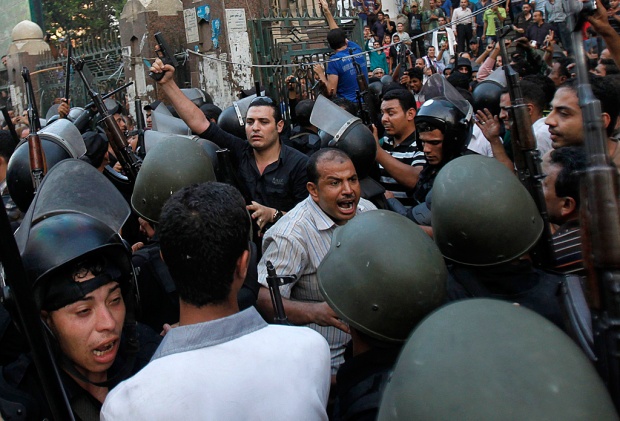
TEMPO.CO, Jakarta - The political upheaval in Egypt is a valuable lesson for Indonesia. Using the excuse of saving the country from the threat of hardline Islamic groups, President Abdul Fattah al-Sisi has silenced critics, shackled the opposition and limited freedom of expression. This has resulted in a protracted crisis.
In the last two weeks, the people of Egypt have flocked to the streets demonstrating to demand president al-Sisi step-down. The government has responded harshly. The police have arrested more than 2,800 people, including political and human rights activists, attorneys and journalists. Many of them have been accused of being members of the Al-Ikhwan al-Muslimun political movement, which was banned in 2014.
This wave of demonstrations was triggered by public anger at the sight of serious corruption at the highest levels of the Egyptian government. It all started with a series of videos uploaded to the Internet by Mohamed Ali, a contractor who had been working with the military for 15 years. One video showed how al-Sisi had spent millions of dollars of the people’s money building a palace, hotel and villa. These videos were shared widely on social media and immediately triggered a series of demonstrations across Egypt.
President al-Sisi himself came to power in a coup d’etat in July 2013. The former defense minister and commander of the Egyptian military overthrew Muhammad Mursi, the president who had been elected in a legitimate poll. His taking over the reins of power was supported by the majority of Egyptians who were angered seeing Mursi and his party, Al-Ikhwan al-Muslimun, forcing the implementation of Islamic sharia law.
Since then, al-Sisi has always used the ghost of hardline Islam to justify his political actions. Social media is tightly controlled. The Emergency Security Court, a body that has no right of appeal, was established to try political prisoners. Opponents are labeled Islamists or terrorists.
Initially, the people of Egypt were supporting this regime. Even when the Egyptian General Elections Committee held a referendum last April, the majority of voters agreed with the constitutional change to extend the presidential term from four years to six, thus allowing al-Sisi to remain in power constitutionally for almost 30 years. It was only after revelations about corruption within the Egyptian government elite that the people realized and took action. But it was all too late.
If people in Indonesia are not careful, what happened in Egypt could easily also occur in this nation. Fear of the threat of radicalism could lead to people excusing authoritarian moves by the government. Few protested about the policy of President Joko Widodo when he issued a governmental regulation in lieu of law on mass organizations in 2017 allowing the disbanding of organizations without a judicial process. We all know the dangers of radical Islam, but using that fear to dismantle democracy and turn a blind eye on corruption is equally dangerous.
Now some of the people are also reluctant to oppose the move by the government and the House of Representatives to revise the Corruption Eradication Commission (KPK) law, which at its heart restricts the independence and authority of the KPK. Many people believe falsely that there is an Islamic radical group – often referred to as the Taliban group – that apparently has control over the anti-corruption body.
The events in Egypt should make us realize. Concerns about radical Islam should not make us stay silent when the achievements of the 1998 reformasi movement are stripped away one by one. It is not too late to stop Indonesia from becoming another Egypt.
Read the Complete Story in this Week's Edition of Tempo English Magazine























